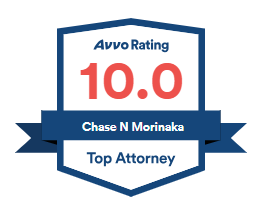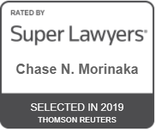Be Prepared. Get Advice for Your next Business Lease. |
Know your terms before you sign! Our business lease team protects you before sign what may be your most important contract.
- Know which language is fair for your situation.
- Think about Bargaining Position.
- Know what terms and conditions are common in your area.
- Make sure the lease says exactly what the Landlord or Broker told you it did.
- Avoid the most common pitfalls.
- Understand what happens in future disagreements.
Schedule a Consultation with a Licensed Business Attorney
What's in Your Business Lease?
Location, location, location! Your commercial lease is one of the most important contracts you will enter as a business owner. Where you locate, what you can do with your space, and the rules for using your space all play an important role in the experience you provide your clients, customers, and business partners.
Any promises made to you by the building owner or management company need to be properly incorporated into your commercial lease. If they are not, you may be out of luck if a new Landlord buys the building or a Landlord changes its mind.
Before you enter an agreement to rent office, industrial, or any other commercial space, you need to understand the fine print. Especially for small and micro-business owners, your lease agreement may represent the largest business transaction you will enter during your first few years in business.
At the very least, new tenants and landlords should come to an agreement on the use of common areas, parking, signage, maintenance and repairs for any significant mechanical equipment such as elevators and HVACs, security equipment, rights to enter the premises, the terms of a default and potential remedies; and options to renew or purchase.
Any promises made to you by the building owner or management company need to be properly incorporated into your commercial lease. If they are not, you may be out of luck if a new Landlord buys the building or a Landlord changes its mind.
Before you enter an agreement to rent office, industrial, or any other commercial space, you need to understand the fine print. Especially for small and micro-business owners, your lease agreement may represent the largest business transaction you will enter during your first few years in business.
At the very least, new tenants and landlords should come to an agreement on the use of common areas, parking, signage, maintenance and repairs for any significant mechanical equipment such as elevators and HVACs, security equipment, rights to enter the premises, the terms of a default and potential remedies; and options to renew or purchase.
Should you have a lawyer review your Business Lease?
Have you ever thought about how much your lease is worth? The amount of monthly rent and any additional rent you may pay if you enter a gross lease or triple net lease, the common area maintenance fees, and operating expenses all add up. When you multiply your monthly rental amount by the number of months in the lease term, your business lease may be one of the largest transactions you will enter during your first few years in business, especially for providers of services or specialty goods.
And, for new businesses, the Landlord will probably want a personal guaranty. Many business owners do not realize that a personal guaranty commits their personal residence, vehicles, bank accounts, any everything else owned in their own names to the lease. An LLC, corporate, or other limited liability entity will not protect your personal assets if you sign a personal guaranty. If there is any room for negotiation in the personal guaranty, you should have your lawyer or commercial real estate broker try to find it.
And, for new businesses, the Landlord will probably want a personal guaranty. Many business owners do not realize that a personal guaranty commits their personal residence, vehicles, bank accounts, any everything else owned in their own names to the lease. An LLC, corporate, or other limited liability entity will not protect your personal assets if you sign a personal guaranty. If there is any room for negotiation in the personal guaranty, you should have your lawyer or commercial real estate broker try to find it.
I am A Business Owner Too!
You have a million other things to do to get your business running and ready for launch. As a business owner, I know how it feels. When I guide you through the lease review and negotiation process, I take the time to make sure you understand the finer points of the agreement, offer suggestions for counter-offers and proposed language, and make sure you feel comfortable before executing the contract. Your lease broker and I work together to get you the most favorable terms possible so you can spend more time and attention the day-to-day operations of your business.
Commercial Lease Mistakes
It is the unfortunate truth that some business owners face problems with their property. Aside from fires and other catastrophic accidents, I have seen situations where pipes bursts and walls are water damaged, where key elevators and lifts break down during the busiest seasons, and where business falls off and owners cannot pay there rent. And, it seems like I see Business Owners make the same mistakes over and over again when it comes to their business or commercial lease contract.
When new business owners negotiate their first lease, three common mistakes I see are:
1. Improper Names on the Contract;
2. Unusually lengthy and Unfair Guaranties; and
3. No option to Renew or options to renew with unfair price terms.
When new business owners negotiate their first lease, three common mistakes I see are:
1. Improper Names on the Contract;
2. Unusually lengthy and Unfair Guaranties; and
3. No option to Renew or options to renew with unfair price terms.
Tips for New Business Owners Signing their First Lease
1. Build-Out Costs. You want to have your contractor and architect lined up as early as possible. Ideally, they can look at your top location choices with you. Not only will this help keep the process moving, but it will help you line up financing or decide what amount your should ask for in a Tenant's Improvement Allowance.
2. NNN & CAMs. Ask for an estimation of the Triple Net and Common Area Maintenance Fees before you agree to them. They are often estimated and reconciled on an annual basis so be aware that those fees could change during the term of the lease.
3. Personal Financial Statements. Landlords may want to see a personal financial statement so prepare in advance. Holding six months of rent payments in cash will help you secure the location.
4. Financing. Begin working with lenders for your lease, or any other business expenses such as equipment, as soon as possible. Not only is it a good practice to have your business financials ready when you ask for money, but preparing your financials will give you a better picture of the strength of your business.
5. Timing. The site selection process can take up to 6 months. Plan accordingly.
6. Term Length. Most commercial leases are for a 3- to 5-year term. Some landlords will trade a few months of free rent or agree to pay for more of the tenant improvements in exchange for longer terms.
2. NNN & CAMs. Ask for an estimation of the Triple Net and Common Area Maintenance Fees before you agree to them. They are often estimated and reconciled on an annual basis so be aware that those fees could change during the term of the lease.
3. Personal Financial Statements. Landlords may want to see a personal financial statement so prepare in advance. Holding six months of rent payments in cash will help you secure the location.
4. Financing. Begin working with lenders for your lease, or any other business expenses such as equipment, as soon as possible. Not only is it a good practice to have your business financials ready when you ask for money, but preparing your financials will give you a better picture of the strength of your business.
5. Timing. The site selection process can take up to 6 months. Plan accordingly.
6. Term Length. Most commercial leases are for a 3- to 5-year term. Some landlords will trade a few months of free rent or agree to pay for more of the tenant improvements in exchange for longer terms.



